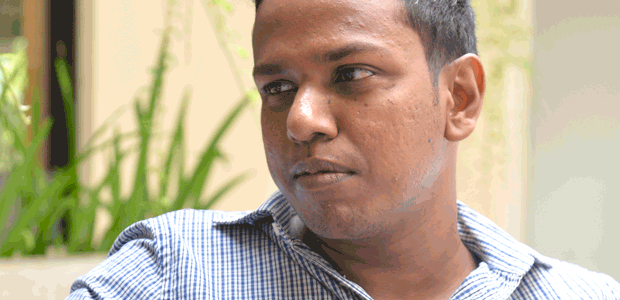Demands from Sri Lanka's Youth
Paving the Way for Lasting Peace
In conversation with youth leader P.J.T. Thanesh from Jaffna on the engagement of youth in national reconciliation
We are accustomed to giving more publicity to the opinions of senior politicians and social activists when it comes to matters of peace, reconciliation and ethnic unity. Meanwhile, our youth work tirelessly on aspects missed out on by the older generation. P.J.T. Thanesh is one such youth; a past student of St. Patrick’s College (Jaffna), he is reading for a doctorate on microbiology. The Catamaran spoke with him recently.
THE CATAMARAN: Many expected the end of the thirty-year war to create permanent peace in the country. But, have we achieved explicit trust between people of north and south?
People in the north rejected war. No one who respects democracy and humanity endorses war. Many civilians lost their lives by being caught in-between the conflict. We must admit that many civilians were killed during the final stages of the war. Talking about them is more important than finding out who the killers were. Many people in the north and south were victims. None of them approved the war. All of us must take a stand that we want no more war. Only a fraction of the population wants war. But we can silence them if the majority speaks up. Politicians need problems to rally people around them. If there are no problems, they will create problems. That is why we do not see peace and reconciliation in the country.
THE CATAMARAN: Both the previous and present governments have taken steps towards peace-building. Why were they not fruitful?
True reconciliation is when people of both north and south feel that anywhere in the country is home. A government alone cannot create that context. Political leadership with a correct view is essential. The government must help to do this, but it is the duty and responsibility of all of us as lawful and just citizens to ensure it happens.
THE CATAMARAN: We talk about national and religious unity and equality. Do you think the caste system still functioning in the North could be an obstacle to this?
The previous generation still cares about the caste system for sure. It is no different in the South. Even newspapers carry marriage proposals that require partners of the same caste. I believe that the new generation is moving away from these things.
THE CATAMARAN: Do you think that the Easter Sunday attacks created a negative shift for the reconciliation process?
Yes, it was great damage to the reconciliation mechanism that was underway. The trust built over a period of time was shattered in the hearts of people along with their trust in national security. Sri Lanka is our country – all of ours. We all begin as human beings but we are separated into races and religions after we are born.










